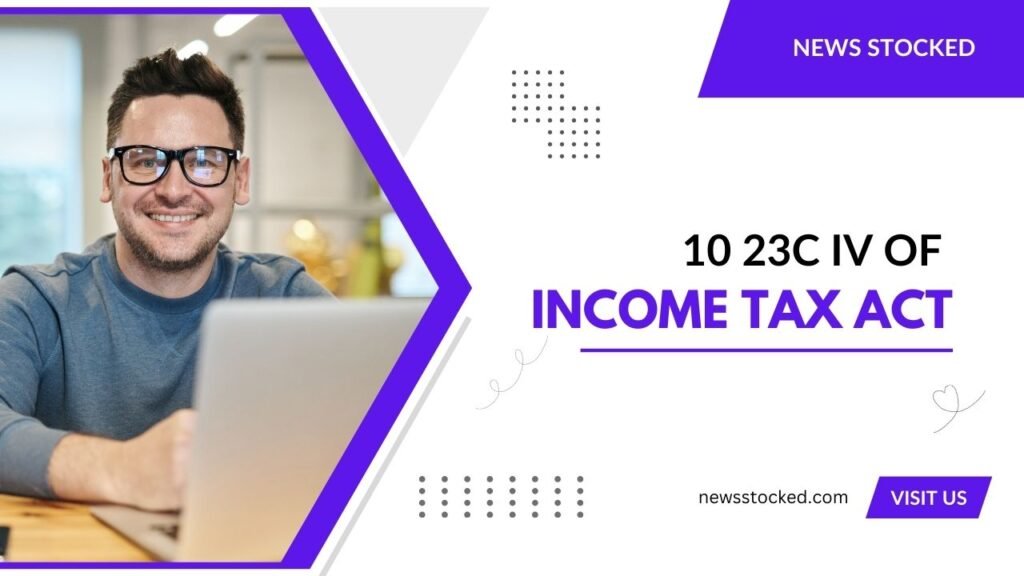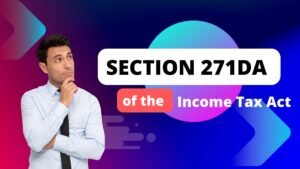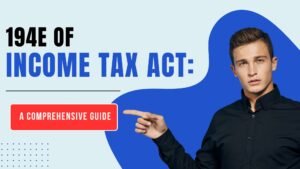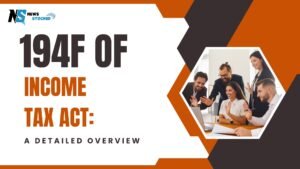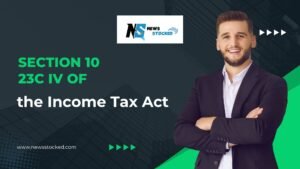The Income Tax Act, 1961, is a comprehensive statute that governs the taxation process in India. One of the important provisions under this act is Section 10 23c iv. This section deals with the tax exemptions available to certain entities, providing them with significant relief. In this blog post, we will delve into the details of Section 10 23c iv of Income Tax Act, explaining its significance, eligibility criteria, and the benefits it offers.
Understanding Section 10 23c iv of Income Tax Act
Section 10 23c iv of the Income Tax Act provides tax exemptions to entities involved in educational or medical activities. Specifically, it grants exemption from tax on the income of institutions established for charitable purposes, which include educational and medical institutions. This exemption is crucial for such institutions as it allows them to utilize their income fully for their charitable activities without the burden of paying taxes.
Eligibility Criteria
To qualify for the exemption under Section 10 23c iv, certain criteria must be met. These include:
- Charitable Purpose: The institution must be established for charitable purposes, primarily focusing on education or medical relief.
- Approval: The institution must obtain approval from the prescribed authority, which is generally the Chief Commissioner or Director of Income Tax.
- Application of Income: The income should be applied or accumulated for the purpose for which the institution is established.
- Utilization of Funds: The funds of the institution must be utilized solely for the purpose of education or medical relief and not for any other purpose.
Importance of Section 10 23c iv
The exemption provided under Section 10 23c iv is significant for charitable institutions as it enables them to maximize their resources for their core activities. By not having to pay taxes on their income, these institutions can reinvest their earnings into improving and expanding their services. This ultimately benefits the society at large by enhancing access to quality education and medical care.
Detailed Breakdown of Section 10 23c iv
Charitable Purpose
One of the primary requirements for availing the exemption under Section 10 23c iv is that the institution should be established for a charitable purpose. In the context of this section, charitable purpose includes:
- Education: Institutions that provide education, including schools, colleges, and universities.
- Medical Relief: Institutions that offer medical relief, including hospitals and clinics.
It is important to note that the term ‘charitable purpose’ has a broad connotation and may encompass various activities aimed at the welfare of society.
Approval from Authorities
For an institution to be eligible for the exemption, it must be approved by the prescribed authority. This involves a detailed application process where the institution has to demonstrate that it meets all the criteria laid out under the Income Tax Act. The approval process ensures that only genuine charitable institutions benefit from the tax exemption.
Application and Accumulation of Income
The income of the institution should be applied or accumulated for the purpose for which it is established. This means that the earnings must be used to further the educational or medical activities of the institution. Any income that is not applied or accumulated for these purposes may be subject to tax.
Utilization of Funds
The funds of the institution must be utilized solely for the intended charitable purposes. This restriction ensures that the tax exemption benefits are not misused and are directed towards enhancing the institution’s services. Misutilization of funds can lead to the withdrawal of the exemption status and may result in penalties.
Benefits of Section 10 23c iv of Income Tax Act
Enhanced Resources
By availing the tax exemption under Section 10 23c iv, institutions can enhance their financial resources. This enables them to allocate more funds towards improving their infrastructure, expanding their services, and reaching out to a larger population.
Increased Accessibility
The exemption helps in reducing the cost burden on institutions, allowing them to offer their services at a more affordable rate. This increased accessibility is particularly important in the fields of education and healthcare, where cost can be a significant barrier for many individuals.
Incentive for Charitable Activities
The tax exemption acts as an incentive for entities to engage in charitable activities. By reducing the tax burden, the government encourages more organizations to establish institutions for educational and medical purposes, thereby contributing to societal welfare.
Challenges and Considerations
Compliance Requirements
While the exemption under Section 10 23c iv provides significant benefits, it also comes with stringent compliance requirements. Institutions must maintain detailed records of their income and expenditure, ensure that their activities align with the charitable purpose, and regularly renew their approval from the authorities.
Risk of Misutilization
There is always a risk of misutilization of the exemption by entities that may not genuinely serve a charitable purpose. To mitigate this risk, the approval process and compliance requirements are designed to be rigorous, ensuring that only eligible institutions benefit from the exemption.
Periodic Review
Institutions availing the exemption under Section 10 23c iv are subject to periodic review by the tax authorities. This review process ensures that the institutions continue to meet the eligibility criteria and utilize their funds appropriately.
Conclusion
Section 10 23c iv of the Income Tax Act plays a crucial role in supporting charitable institutions engaged in educational and medical activities. By providing a tax exemption, it enables these institutions to maximize their resources for their core activities, thereby benefiting society at large. However, the exemption also comes with strict compliance requirements to ensure that only genuine institutions benefit from it. Understanding the nuances of this section is essential for any institution seeking to avail its benefits.
Also Read
- Section 271DA of the Income Tax ActThe Income Tax Act in India is a set of laws that guide how taxes are collected and managed in the country. One important part of this law is Section 271DA of the Income Tax Act, which deals with cash…
- 194E of Income Tax Act: A Comprehensive GuideThe Indian Income Tax Act, 1961, is a law that outlines how taxes should be handled in India. Within this law, there is Section 194E, which specifically deals with how taxes should be deducted on payments made to non-resident sportsmen…
- 194F of Income Tax Act: A Detailed OverviewThe Income Tax Act of 1961 is a comprehensive statute that governs the taxation of income in India. Within this act, various sections deal with specific aspects of taxation, including the obligations of taxpayers, tax rates, and deductions. Section 194F…
- Section 10 23C iiiad of Income Tax ActTax laws in India have special provisions that allow certain institutions to avoid paying taxes. Section 10 23C iiiad of the Income Tax Act is one such provision, specifically aimed at helping smaller educational institutions. It allows them to be…
- Section 10 23C iv of the Income Tax Act: A Detailed ExplanationSection 10 23C iv of the Income Tax Act, 1961, is a part of the Indian tax law that offers tax exemptions to certain organizations. This section is particularly important for institutions that work for the public good, such as…
Frequently Asked Questions
What is Section 10 23c iv of the Income Tax Act?
Section 10 23c iv of the Income Tax Act provides tax exemptions to certain charitable institutions. This means that educational and medical institutions established for charitable purposes do not have to pay taxes on their income. To qualify, these institutions must be approved by the prescribed authority, typically the Chief Commissioner or Director of Income Tax. The income must be used solely for educational or medical purposes. This exemption helps these institutions use more of their funds for their core activities, benefiting society by improving access to education and healthcare.
Who is eligible for tax exemption under Section 10 23c iv?
Institutions eligible for tax exemption under Section 10 23c iv must be established for charitable purposes, focusing on education or medical relief. This includes schools, colleges, universities, hospitals, and clinics. These institutions must obtain approval from the prescribed authority, such as the Chief Commissioner or Director of Income Tax. They must also ensure that their income is used solely for their educational or medical activities. Compliance with these requirements ensures that they benefit from the tax exemption, allowing them to maximize their resources for their charitable work.
How can an institution apply for approval under Section 10 23c iv?
To apply for approval under Section 10 23c iv, an institution must submit an application to the prescribed authority, usually the Chief Commissioner or Director of Income Tax. The application should include detailed information about the institution’s charitable purpose, financial records, and proof of its educational or medical activities. The authority reviews the application to ensure the institution meets all criteria laid out under the Income Tax Act. Approval is granted only if the institution is found to genuinely serve a charitable purpose, focusing on education or medical relief.
What does ‘charitable purpose’ mean under Section 10 23c iv?
Under Section 10 23c iv, ‘charitable purpose’ primarily includes activities related to education and medical relief. Educational institutions such as schools, colleges, and universities, as well as medical institutions like hospitals and clinics, fall under this category. The term has a broad meaning, encompassing various activities aimed at the welfare of society. For an institution to qualify for tax exemption, it must prove that its primary aim is to provide educational or medical services and that its income is used solely for these purposes.
How does the tax exemption benefit educational institutions?
The tax exemption under Section 10 23c iv allows educational institutions to use their income fully for their core activities without the burden of paying taxes. This means more funds are available for improving infrastructure, expanding services, and offering quality education. By reducing operational costs, the exemption makes education more accessible and affordable. Schools, colleges, and universities can invest in better facilities, hire qualified staff, and provide scholarships. This benefits society by enhancing the quality of education and making it available to a larger population.
How does the tax exemption benefit medical institutions?
The tax exemption under Section 10 23c iv allows medical institutions to use their income fully for their core activities without paying taxes. Hospitals and clinics can reinvest their earnings into improving facilities, buying advanced medical equipment, and expanding services. This helps in providing better healthcare to more people. By reducing operational costs, the exemption makes medical services more affordable and accessible. Patients benefit from improved care, and the institution can reach out to underserved communities, enhancing overall public health and well-being.
What are the compliance requirements for Section 10 23c iv?
Institutions availing the tax exemption under Section 10 23c iv must adhere to strict compliance requirements. They need to maintain detailed records of their income and expenditure, ensuring that their activities align with their charitable purpose. Regular audits and financial reporting are mandatory. Institutions must also renew their approval from the prescribed authority periodically. Compliance ensures transparency and accountability, confirming that the institution continues to meet the eligibility criteria and uses its funds appropriately for educational or medical purposes.
What happens if an institution misuses its funds?
If an institution misuses its funds, it risks losing the tax exemption under Section 10 23c iv. Misuse includes using funds for purposes other than education or medical relief. The tax authorities may conduct periodic reviews to ensure compliance. If an institution is found to be misusing its funds, its approval for tax exemption can be withdrawn. Additionally, the institution may face penalties and be required to pay back taxes. Ensuring that funds are used appropriately for the intended charitable purpose is crucial to maintaining the tax-exempt status.
Can an institution lose its approval under Section 10 23c iv?
Yes, an institution can lose its approval under Section 10 23c iv if it fails to comply with the requirements. Non-compliance includes not maintaining proper records, misusing funds, or not using the income for the intended charitable purpose. The prescribed authority conducts periodic reviews to ensure that the institution continues to meet the eligibility criteria. If found non-compliant, the institution’s approval for tax exemption can be revoked, resulting in the loss of tax benefits and possible penalties.
How does the periodic review process work for approved institutions?
Approved institutions under Section 10 23c iv are subject to periodic reviews by the tax authorities. During a review, the authorities examine the institution’s financial records, expenditure, and activities to ensure compliance with the eligibility criteria. The institution must demonstrate that its income is being used for educational or medical purposes and that it adheres to all guidelines. Reviews help maintain transparency and accountability. If an institution is found compliant, it retains its tax exemption. Non-compliance can lead to revocation of the approval and loss of tax benefits.

